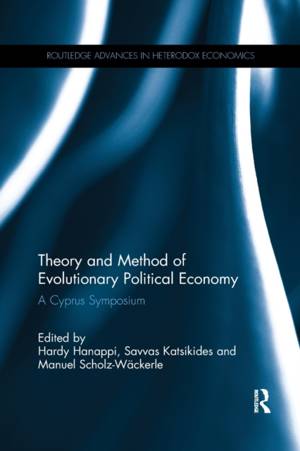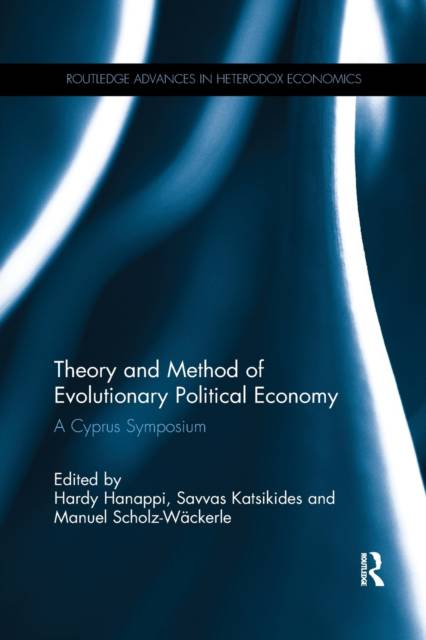
- Retrait gratuit dans votre magasin Club
- 7.000.000 titres dans notre catalogue
- Payer en toute sécurité
- Toujours un magasin près de chez vous
- Retrait gratuit dans votre magasin Club
- 7.000.000 titres dans notre catalogue
- Payer en toute sécurité
- Toujours un magasin près de chez vous
Theory and Method of Evolutionary Political Economy
A Cyprus Symposium
Description
The world is in turmoil, the dynamics of political economy seem to have entered a phase where a 'return to normal' cannot be expected. Since the financial crisis, conventional economic theory has proven itself to be rather helpless and political decision makers have become suspicious about this type of economic consultancy. This book offers a different approach. It promises to describe political and economic dynamics as interwoven as they are in real life and it adds to that an evolutionary perspective. The latter allows for a long-run view, which makes it possible to discuss the emergence and exit of social institutions.
The essays in this volume explore the theoretical and methodological aspects of evolutionary political economy. In part one, the authors consider the foundational contributions of some of the great economists of the past, while the second part demonstrates the benefits of adopting the methods of computer simulation and agent-based modelling. Together, the contributions to this volume demonstrate the richness, diversity and great explanatory potential of evolutionary political economy.
This volume is extremely useful for social scientists in the fields of economics, politics, and sociology who are interested to learn what evolutionary political economy is, how it proceeds and what it can provide.
Spécifications
Parties prenantes
- Editeur:
Contenu
- Nombre de pages :
- 264
- Langue:
- Anglais
- Collection :
Caractéristiques
- EAN:
- 9780367595449
- Date de parution :
- 14-08-20
- Format:
- Livre broché
- Format numérique:
- Trade paperback (VS)
- Dimensions :
- 155 mm x 231 mm
- Poids :
- 408 g






